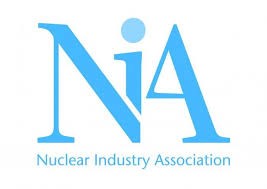Energy consultants Equilibrion and the Nuclear Industry Association (NIA) just issued a report titled Synthetic Fuels: The Opportunity for Economy Scale Production of Synthetic Fuels from Nuclear Energy that said that large-scale production of nuclear derived net-zero synthetic fuels could help hard-to-decarbonize sectors such as aviation and shipping. The transport sector is responsible for twenty seven percent of global greenhouse emissions.
Synthetic fuels are not derived from fossil fuels. They
rely on carbon dioxide obtained from the environment and low carbon hydrogen feedstock to synthesize hydrogen-based fuels that perform like fossil fuels but with no net release of carbon dioxide to the atmosphere”, according to the report. Synthetic fuel production can use CO2 from different sources including industrial emissions, direct air capture or seawater capture.
The report adds, “The drawback is that synthetic fuel production routes are perceived as energy intensive and restricted in availability due to assessments which solely consider the use of renewable energy. This is where nuclear can deliver the solution needed … and unlock the path to far greater supply of synthetic fuels to the sectors which need it most, reducing emissions beyond what can be achieved with bio-fuel alternatives and even becoming carbon negative in the future.”
The report goes on to say that heat and electricity generated by nuclear power plants can be used for all stages of the process. Seawater can be desalinated to produce pure water for hydrogen production. The report urges the U.K. government to recognize the potential role of nuclear power in its upcoming Sustainable Aviation Fuel Mandate. It also recommends that U.K. government and non-government net-zero modeling should include nuclear-derived synthetic fuels and that the government should “consider amendments to the Renewable Transport Fuels Obligation to enable nuclear to be exploited for the production of fuels in the wider low carbon fuels market.”
Some of these measures are set to be moved forward by the U.K. government’s Energy Security Bill which is currently being considered by the House of Lords. It suggests including nuclear-derived fuels under renewable transport fuel schemes such as the production of sustainable aviation fuel and hydrogen.
The new report predicts a global synthetic fuels market of fifteen billion dollars by 2030 and six hundred billion dollars by 2050.
Tom Greatrex is the chief executive of NIA which is the trade association for the civil sector in the U.K. He said, “Nuclear energy can play a crucial role in providing the primary energy to support the decarbonization of sectors which are currently almost entirely reliant on fossil fuels. The UK must take this golden opportunity to be a global leader and we stand ready to provide the energy that the market needs.”
Phil Rogers is director of Equilibrion, which says its purpose “is to work with businesses to fulfil the potential of nuclear energy to decarbonize our heat, transport and industrial sectors.” He said, “The transport sector is responsible for close to a third of UK emissions, so the ability to directly replace fossil fuels with zero carbon equivalents, particularly for aviation, shipping and heavy transport, could have a game-changing impact on our journey to net-zero.”
Nuclear Reactors 1191 – New Report Promotes The Use Of Nuclear Power To Produce Synthetic Fuels

